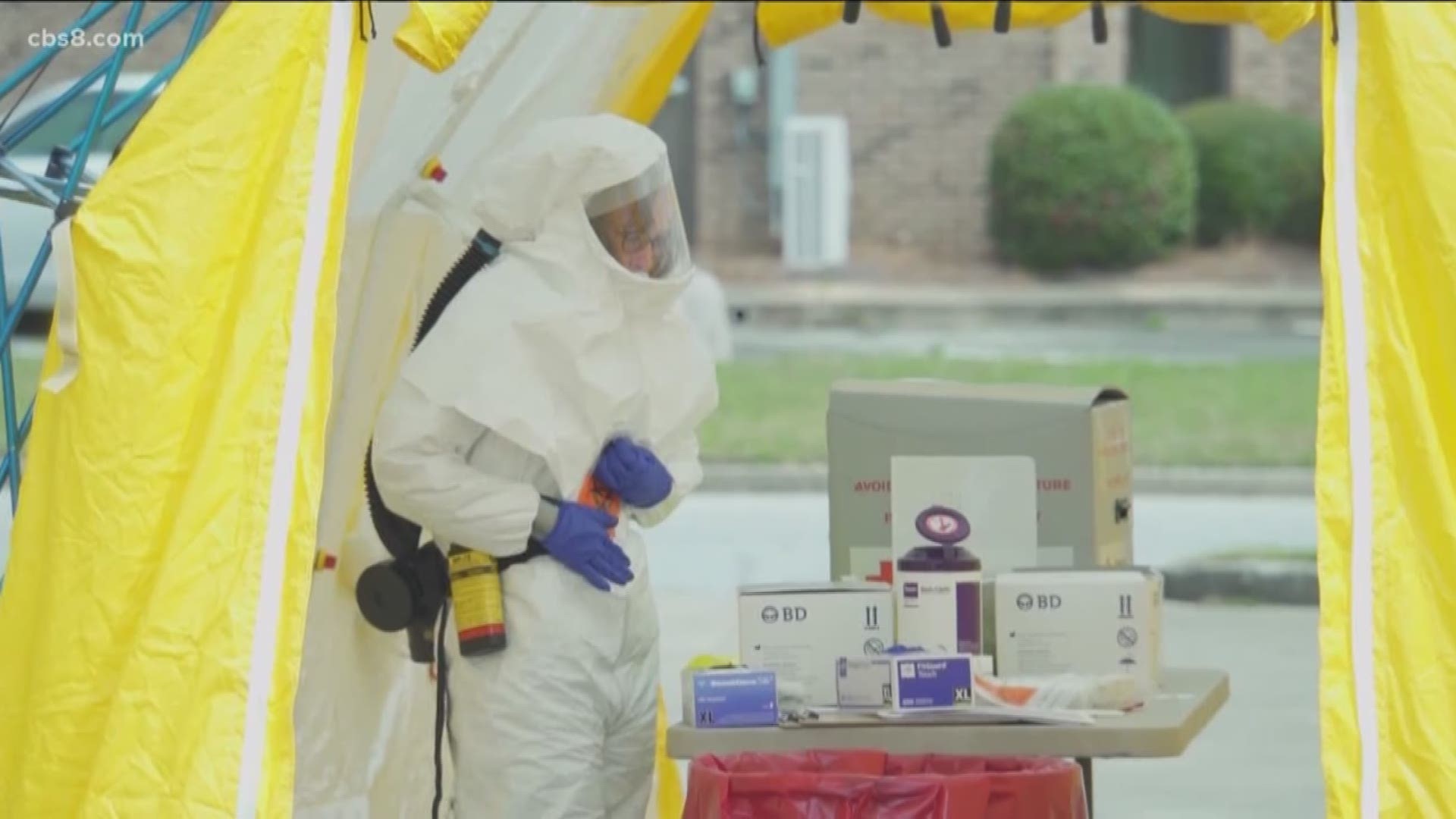CALIFORNIA, USA — Gov. Gavin Newsom on Tuesday provided a stark assessment of the spreading coronavirus that threatens to overwhelm hospitals and drain the state’s spending reserves.
“We’re going to rise and fall together,” said Newsom.
While urging Californians to stay united, he says the state is preparing for frightening worst-case scenarios. He put the National Guard on alert for duties like ensuring proper food distribution.
He says the state is acquiring two vacant hospitals to beef up capacity. California also is negotiating to acquire tens of thousands of rooms that could be used for hospital patients and for the homeless.
Newsom said that 98.8% of California schools are closed. Some rural schools will remain open for the time being. According to Newsom, California has more than 1,000 school districts.
“Don’t anticipate schools are going to open up in a week,” said Newsom.
Newsom said schools likely will not reopen before summer. He said he had to explain that to his daughter Monday night when she was upset.
"Honey, I don’t think the schools are going to open again [by summer]," said Newsom.
Newsom said educators are “diving deep into curating curriculum” to help home school kids during this time. However, California is still allowing day cares to remain open that follow proper safety guidelines.
Newsom also discussed how hospitals are trying to prevent a surge in patients.
If hospitals utilize all their resources, there are 88,000 beds total statewide based, but based one some models, California may need 19,000 to 20,000 more beds. Newsom said California may need to transition operating rooms to ICU rooms.
Newsom also noted that healthcare workers need more equipment to safely do their jobs, such as protective eyewear and RNA extraction kits to utilize the test kits California already has. In the "sobering conversation" Newsom said the state is pushing for more mobile testing to get people into safe environments outside of a hospital setting.
“We can to keep ahead of the curve and make sure we have those swabs,” said Newsom.
Newsom said California's high population of scientists and engineers is focusing on a COVID-19 treatment, not just a vaccine. Newsom said he is pleased that President Trump is supporting telehealth for Medicaid and Medicare.
The California Department of Public Health announced that as of Monday evening, there are 472 confirmed cases of COVID-19 statewide. This includes 11 deaths.
California is in talks with 109 motels and hotels to secure several thousand rooms for patients that are either homeless and/or need to be isolated, but not hospitalized.
Ages of all confirmed positive cases:
- Age 0-17: 7 cases
- Age 18-64: 300 cases
- Age 65+: 160 cases
- Unknown: 5 cases
24 – Cases of positive tests related to federal repatriation flights
448 – Cases not related to repatriation flights
- 82– Travel-related
- 75 – Person to person
- 98 – Community transmission
- 193 – Under investigation
11,750+ – Number of people self-monitoring who returned to the U.S. through SFO or LAX
49 – Number of local health jurisdictions involved in self-monitoring
22 – Labs with test kits, 21 of which are already testing
In a sweeping public health order, San Diego County officials Monday banned gatherings larger than 50 people, closed all bars and restricted restaurants to take-out and drive-through services only, among other orders and recommendations. San Diego Mayor Kevin Faulconer along with several other city officials also spoke Monday issuing the same directives to those throughout the city.
BACKGROUND:
According to the CDC, coronavirus (COVID-19) is a family of viruses that is spreadable from person to person. Coronavirus is believed to have been first detected in a seafood market in Wuhan, China in December 2019. If someone is sick with coronavirus, the symptoms they may show include mild to severe respiratory illness, cough, and difficulty breathing.
Currently, there is no vaccine, however, the CDC suggests the following precautions, along with any other respiratory illness:
- Avoid close contact with people who are sick.
- Avoid touching your eyes, nose, and mouth.
- Stay home when you are sick.
- Cover your cough or sneeze with a tissue, then throw the tissue in the trash.
- Clean and disinfect frequently touched objects and surfaces using a regular household cleaning spray or wipe.
- Wash your hands with soap and water for a minimum of 20 seconds.
The CDC also says facemasks should only be used by people who show symptoms of the virus. If you’re not sick, you do not have to wear a facemask. The CDC says the immediate risk to the U.S. public is low.

